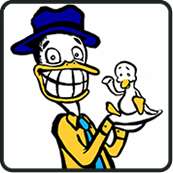Allergen immunotherapy is the last word in hay fever treatment. It can be quite expensive (each shot costs about $25), but there are studies that have proven that you can get as close to a "cure" as humanly possible. What it involves:
- First you'll get an allergy test: they'll prick you and introduce a little bit of a variety of allergens under your skin to see what the reaction is like.
- You'll get a lovely little red bump on your skin when the reaction is allergic.
- If you have eczema or if you're on medication that might interfere with the results of skin test, they'll give you the RAST (radioallergosorbent blood test) instead.
- Once your particular allergens are identified, they'll begin to inoculate you against them. What that means is that small doses of the allergen are shot into your bloodstream, so that you body can slowly begin to develop a resistance to them.
- Over time, the dosages are increased as you become more and more desensitized to the allergen.
- Most patients experience a significant reduction in their hay fever within twelve months.
- How long it lasts. Treatment varies, but in general, you get a shot once a week for the first 30 weeks or so. They keep you in the doctor's office for at least 20 minutes following a shot to monitor you for a possible adverse reaction. After the initial period, you may get shots only once every 2 or 3 weeks, and towards the end, once a month. Treatment usually lasts a minimum of 2 years up to a maximum of 5 years. Immunotherapy works, but obviously the time and trouble involved means it's not for everyone. Once you start, it's very important that you continue with the treatment on a regular basis.
- Possible side effects. The reason they keep you in the office after a shot is to watch for a possible allergic reaction to the shot. Rarely, a patient might experience an asthma attack or even anaphylactic shock. Other reactions might include wheezing, tightness in the chest, nausea, itchy eyes, watery nasal discharge, swelling in the throat, or dizziness. None of these reactions is particularly pleasant, and that's why the monitoring period is so important.
SoYouWanna know more? Check out our full-length article SYW manage your hay fever?

